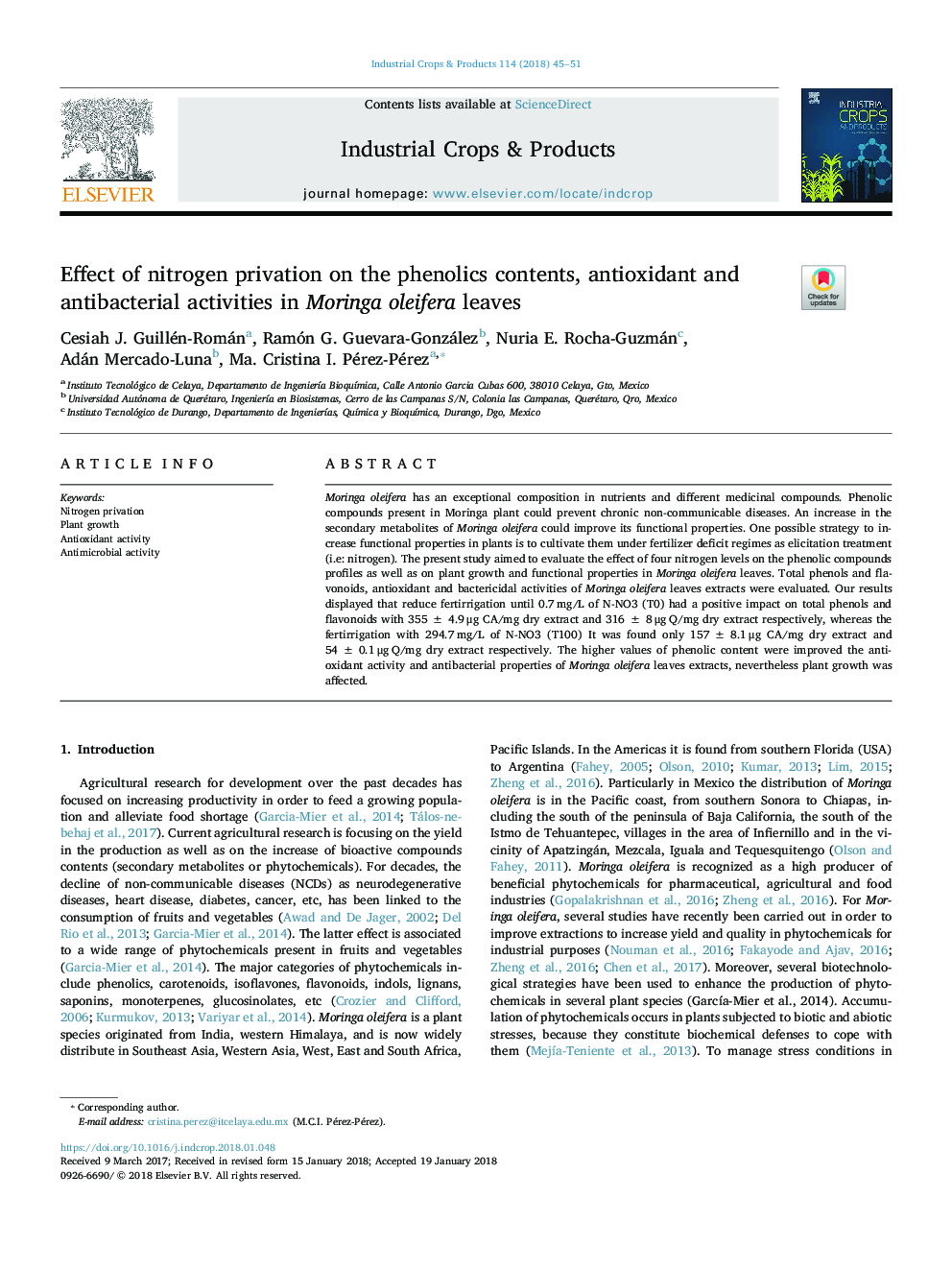| Article ID | Journal | Published Year | Pages | File Type |
|---|---|---|---|---|
| 8880400 | Industrial Crops and Products | 2018 | 7 Pages |
Abstract
Moringa oleifera has an exceptional composition in nutrients and different medicinal compounds. Phenolic compounds present in Moringa plant could prevent chronic non-communicable diseases. An increase in the secondary metabolites of Moringa oleifera could improve its functional properties. One possible strategy to increase functional properties in plants is to cultivate them under fertilizer deficit regimes as elicitation treatment (i.e: nitrogen). The present study aimed to evaluate the effect of four nitrogen levels on the phenolic compounds profiles as well as on plant growth and functional properties in Moringa oleifera leaves. Total phenols and flavonoids, antioxidant and bactericidal activities of Moringa oleifera leaves extracts were evaluated. Our results displayed that reduce fertirrigation until 0.7â¯mg/L of N-NO3 (T0) had a positive impact on total phenols and flavonoids with 355â¯Â±â¯4.9â¯Î¼g CA/mg dry extract and 316â¯Â±â¯8â¯Î¼gâ¯Q/mg dry extract respectively, whereas the fertirrigation with 294.7â¯mg/L of N-NO3 (T100) It was found only 157â¯Â±â¯8.1â¯Î¼g CA/mg dry extract and 54â¯Â±â¯0.1â¯Î¼gâ¯Q/mg dry extract respectively. The higher values of phenolic content were improved the antioxidant activity and antibacterial properties of Moringa oleifera leaves extracts, nevertheless plant growth was affected.
Related Topics
Life Sciences
Agricultural and Biological Sciences
Agronomy and Crop Science
Authors
Cesiah J. Guillén-Román, Ramón G. Guevara-González, Nuria E. Rocha-Guzmán, Adán Mercado-Luna, Ma. Cristina I. Pérez-Pérez,
